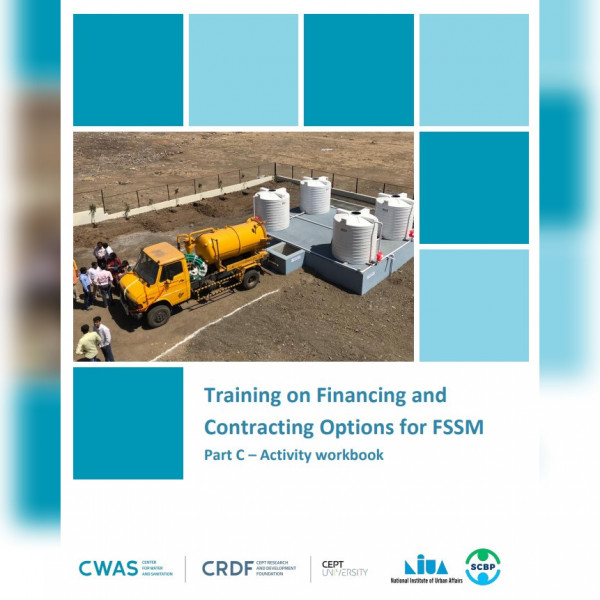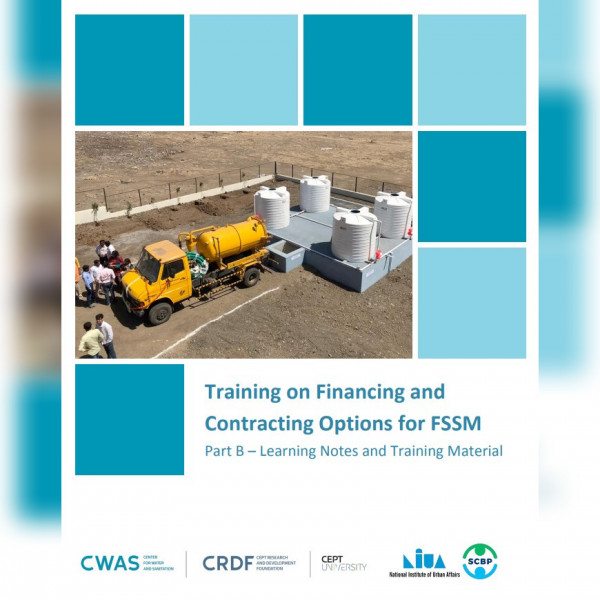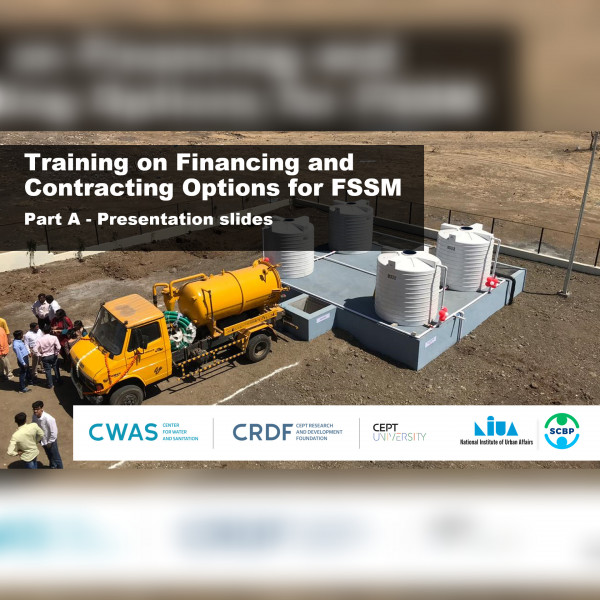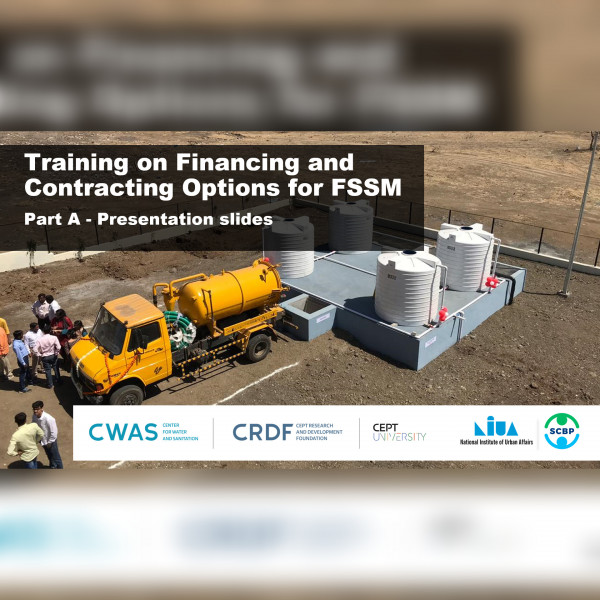Training Module on Financing and Contracting options for FSSM
January 2021
India has seen impressive sanitation achievements in making cities open defecation free and has largely succeeded in achieving the goal of Swachh Bharat Mission. However, achieving Sustainable Development Goal 6.2 for moving towards “safely managed sanitation” i.e collecting and treating all faecal waste safely, will require greater effort.
For moving ‘beyond toilets’ we need to focus on conveyance, treatment and also reuse. Data suggests that nearly 80% of faecal waste in India remains untreated and discharged in the domestic environment, agriculture fields or in water bodies. Conventionally, in India, this entails treatment plants connected to large scale sewerage systems, typically funded by central and state government programmes. As a result, out of 4700 cities, only around 400 cities have sewerage connections with treatment plant. Most cities have on-site sanitation systems, which are financially viable for smaller cities2 to service and manage.
The need for Faecal Sludge and Septage Management (FSSM) is now recognized at the national level through National FSSM policy and missions and activities such as Swachh Sarvekshan and AMRUT programme. Indian states are now evolving FSSM strategies and implementing them in their cities through various state programmes and funds. Government of India has also made available programmatic funding through AMRUT and certain SBM components.
This module on “Financing and contracting options for FSSM” focuses on how cities can leverage available public funds, augment these with private financing, encourage private sector role in service delivery and explore other blended and innovative financing mechanisms. It will provide guidance on potential service and operation models in FSSM for both conveyance and treatment. It has been developed in partnership with NIUA's Sanitation Capacity Building Platform.



